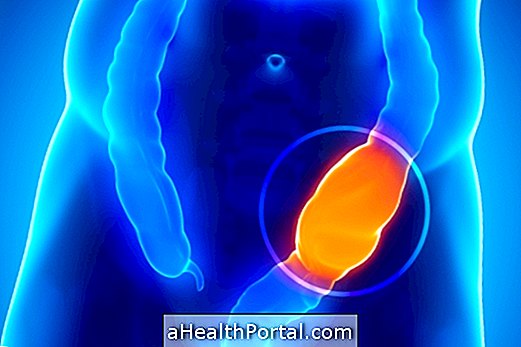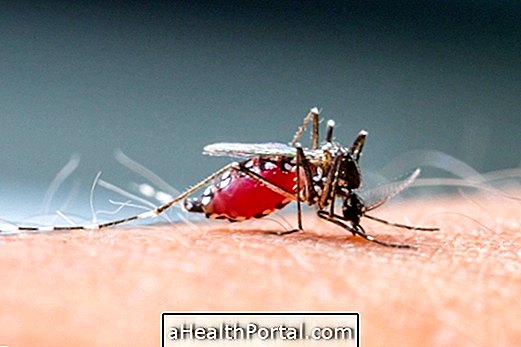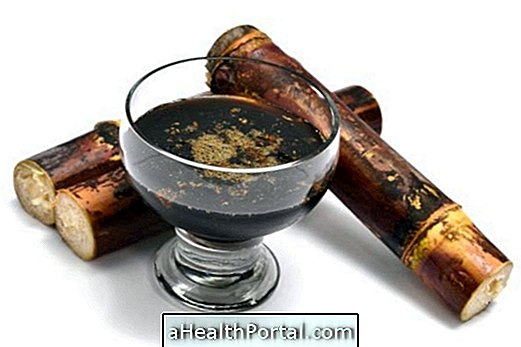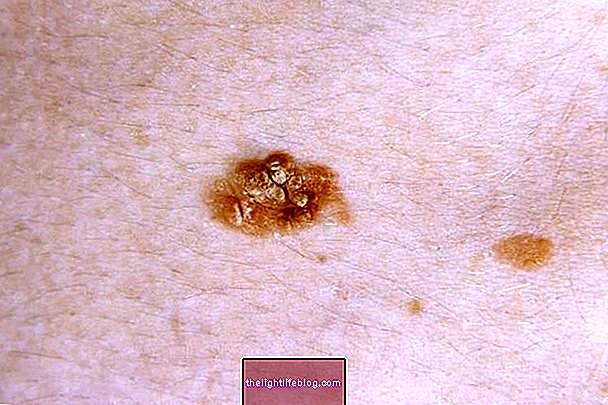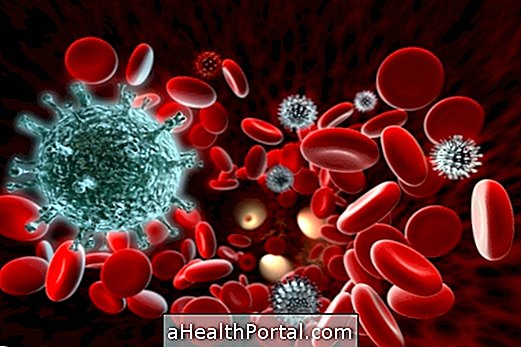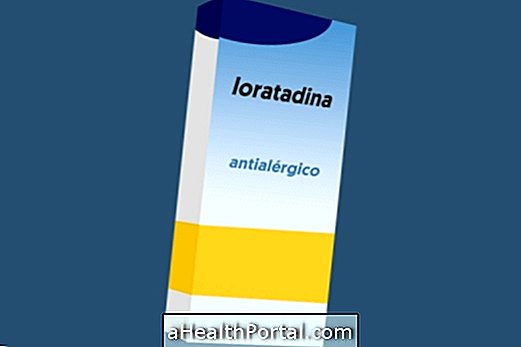Cancer in the esophagus can cause difficulty swallowing, dark stools or a lump in the upper stomach, but in most cases when the symptoms appear the cancer is already at an advanced stage and with metastases, having less chance of cure.
In addition, treatment should be indicated by the oncologist, with surgery to remove a portion of the esophagus the most common treatment, as well as chemotherapy and radiation therapy to decrease symptoms and increase life expectancy.
Main symptoms of esophageal cancer
Some signs and symptoms that may indicate the development of cancer include:
- Difficulty and pain to swallow, initially solid foods and then liquids;
- Constant hoarseness and cough;
- Loss of appetite and weight;
- Tiredness to perform simple exercises, such as cleaning the bed or climbing stairs;
- Feeling of full stomach ;
- Vomiting with blood and nausea;
- Dark stools , pasty and smelling strongly or with blood;
- Abdominal discomfort that does not go away;
- Nodule in the stomach, which is palpable;
- Swollen tongues on the left side of the neck;
- Nodules around the navel .
This type of cancer is most common in men from 50 years of age, but it can appear at any stage of life.
How to diagnose cancer of the esophagus
To make a diagnosis of cancer of the esophagus, it is necessary to perform an endoscopy, which is a test to see the inside of the esophagus and stomach, looking for changes.
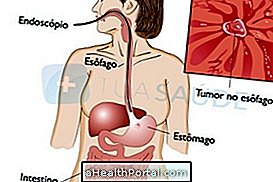

When a nodule is present or the patient has difficulty swallowing, known as dysphagia, it is recommended to have an x-ray of the esophagus and a biopsy to confirm the suspicion of cancer. In addition, your doctor may order a blood test that includes a blood count to check for anemia and a stool test to check for blood in the stool.
Types of esophageal cancer
The most common types of esophageal cancer are squamous cell carcinoma, also known as squamous cell carcinoma and adenocarcinoma.
Epidermoid carcinoma is the most common type of cancer of the esophagus, mainly affecting the upper esophagus, being common in smokers and alcoholics.
Adenocarcinoma appears in most cases in the portion that joins the esophagus to the stomach and is frequent in patients with chronic gastric reflux, Barrett's esophagus and in case of obesity, for example, having a better prognosis.
Stages of esophageal cancer
Esophageal cancer can be classified into:
- Stage I - Tumor in the wall of the esophagus with about 3 to 5 mm and without metastases, with greater chances of cure;
- Stage II - Increased esophageal wall with more than 5 mm and no metastases with some chances of cure;
- Stage III - Thickening of the esophageal wall that affects the tissue around the esophagus with little chance of cure;
- Stage IV - Presence of metastases through the body, with very little chance of cure.
However, these stages can be described in more detail according to the type of esophageal cancer that was diagnosed by the doctor.
Life span of cancer in the esophagus
The life prognosis of this type of cancer varies with the type of cancer, staging, treatments performed and patient response to treatment, however as this disease is in most cases detected at an advanced stage and, therefore, the patient's life expectancy is about 5 years.
In addition, the life prognosis of a patient with cancer of the esophagus is greater when the tumor is only located in the esophagus and there are no metastases.
Main causes of esophageal cancer
Generally, cancer of the esophagus is caused by factors such as:
- Exaggerated consumption of alcoholic beverages and ciagarro;
- Intake of hot drinks above 65 ° C such as coffee, tea or mate, for example;
- Intake of alkaline substances such as chlorine used for cleansing leading to narrowing of the esophagus;
- History of cancer of the head or neck.
In addition, this type of cancer is more common in patients with diseases such as tilose, gastroesophageal reflux or Plummer-Vinson's syndrome, achalasia or Barrett's esophagus for example, with esophageal irritation usually occurring due to reflux of the stomach juice or of bile.
Treatment for esophageal cancer
To treat esophageal cancer, surgery is usually done to remove the portion of the esophagus that contains the tumor, as well as chemotherapy and radiation therapy.
In this way, the treatment done by an oncologist includes:
- Surgery to remove the esophagus : remove the portion that has the tumor and the rest is attached to the stomach. However, when the esophagus has to be completely withdrawn, it is necessary to place an artificial prosthesis of the esophagus or remove a portion of the intestine to replace the esophagus, for example;
- Radiation therapy: is done to prevent the growth of tumor cells in the esophagus;
- Chemotherapy: through injections into the vein or muscle and in some cases through tablets.
In most cases these treatments do not fully cure cancer, they just help reduce cancer symptoms and prolong the life of the patient.
Food for cancer of the esophagus
In the case of esophageal cancer it may be necessary to make some changes in food, due to the difficulty to swallow and the side effects of the treatments, mainly of the chemotherapy that causes nausea and abdominal discomfort.
In this way, it may be necessary to prepare pastey foods such as porridge and soup beaten in the blender or add thickener to liquid foods. In addition, it may be necessary to receive nutrients directly into the vein or use a nasogastric tube, which is a tube that runs from the nose to the stomach, to help get the right foods. To know how to prepare meals in these situations read: What to eat when I can not chew.




